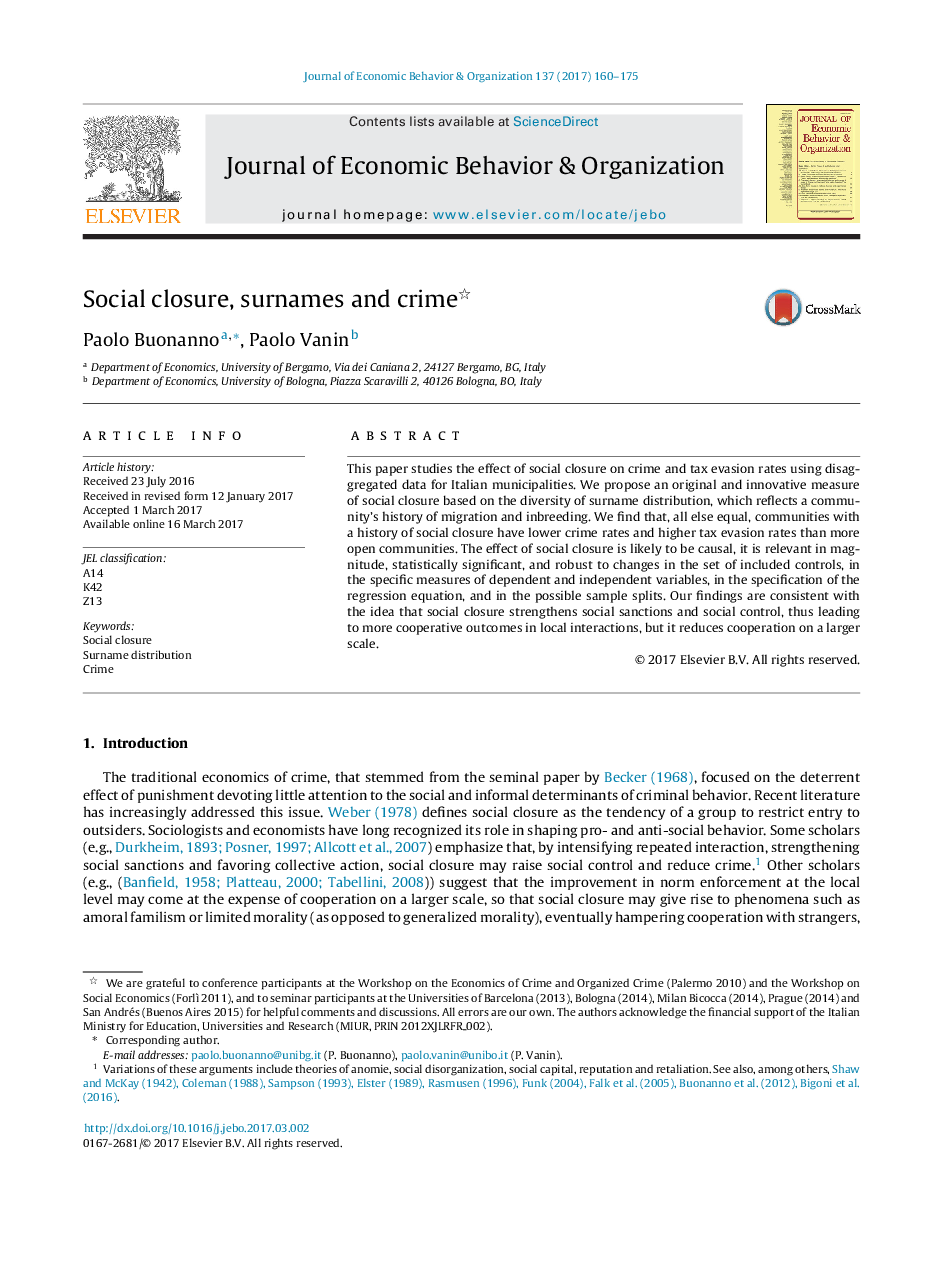| Article ID | Journal | Published Year | Pages | File Type |
|---|---|---|---|---|
| 5034561 | Journal of Economic Behavior & Organization | 2017 | 16 Pages |
â¢Study of the effect of social closure on crime rates.â¢Use of very disaggregated data for Italian municipalities.â¢Use of an original and innovative measure of social closure based on the diversity of surname distribution.â¢Results support the view that social closure favors limited as opposed to generalized morality.â¢Social closure strengthens cooperation at the local level, but hampers cooperation with strangers.
This paper studies the effect of social closure on crime and tax evasion rates using disaggregated data for Italian municipalities. We propose an original and innovative measure of social closure based on the diversity of surname distribution, which reflects a community's history of migration and inbreeding. We find that, all else equal, communities with a history of social closure have lower crime rates and higher tax evasion rates than more open communities. The effect of social closure is likely to be causal, it is relevant in magnitude, statistically significant, and robust to changes in the set of included controls, in the specific measures of dependent and independent variables, in the specification of the regression equation, and in the possible sample splits. Our findings are consistent with the idea that social closure strengthens social sanctions and social control, thus leading to more cooperative outcomes in local interactions, but it reduces cooperation on a larger scale.
